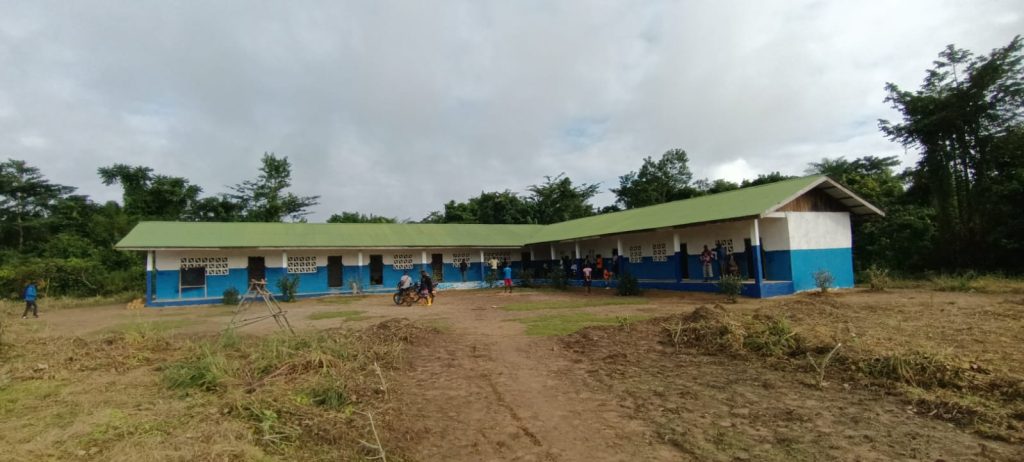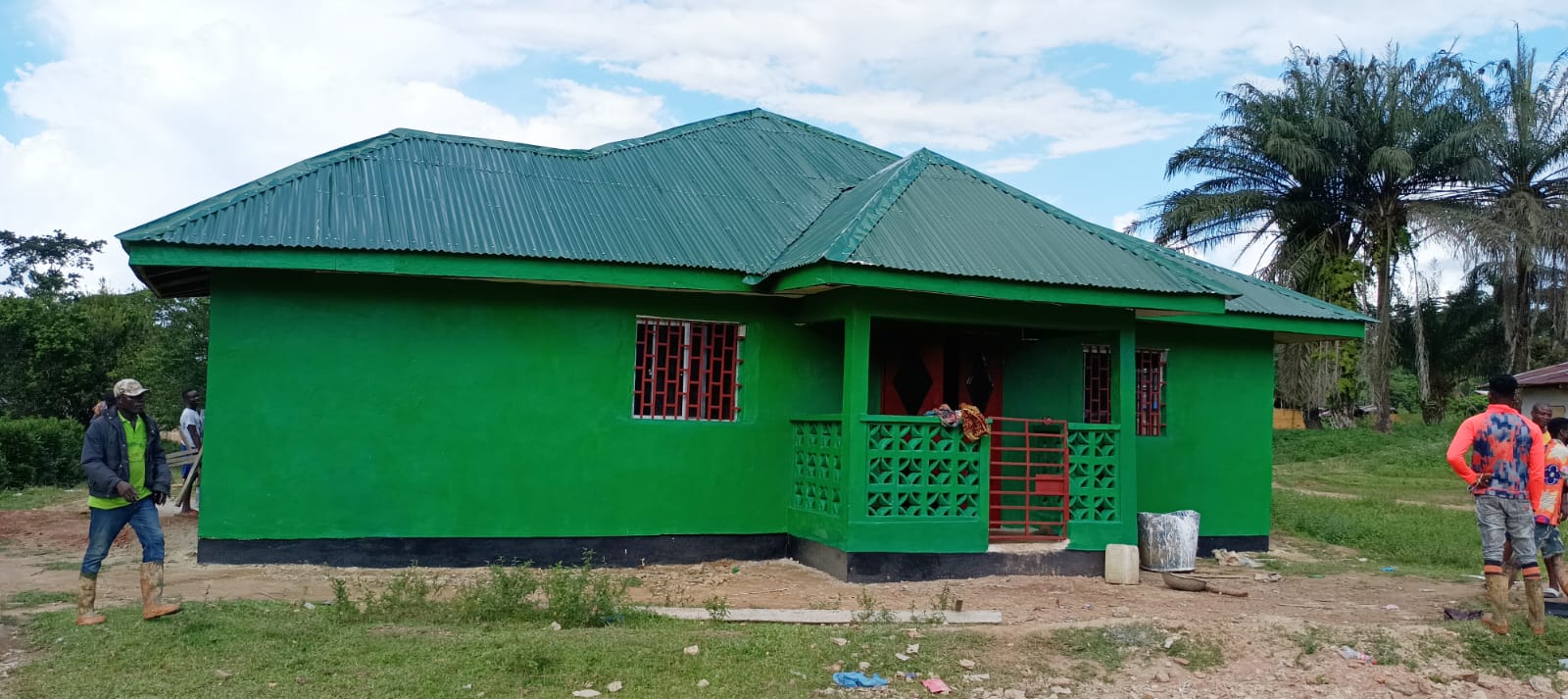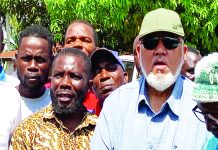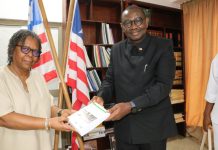Top: A town hall in Voogbadee in Sinoe County. File picture/National Benefit Sharing Trust Board
By Varney Kamara
MONROVIA – The National Benefit Sharing Trust Board (NBST), which ensures communities benefit from logging concessions, has approved US$146,117.49 for projects, according to an unpublished report.
The January to June 2024 report unpublished until now, highlights initiatives undertaken during the first half of 2024. Projects include schools, clinics, and guesthouses in River Cess, Grand Gedeh, Sinoe, and Gbarpolu Counties.
“We have outlined areas of work to ensure long-term sustainability and capacity building and highlighted significant efforts undertaken… to address challenges so that the NBST can become more effective and efficient in the implementation of its mandate,” the report said.
In the coming months, NBST is expected to supervise the construction of the Voogbadee Service Center in Sinoe County, Putu Duo Town Hall in Grand Gedeh, and the Zeegar Town Community Health Center in River Cess, accounting for 73 percent of its approved new projects.
NBST is an offspring of the National Forestry Reform Law of 2006 (NFRL). Its main function is to manage land rental fees from concessionaires to communities affected by commercial logging.

Since its creation, the trust, which comprises traditional leaders, representatives of the forestry authorities, logging companies, community forest representatives, civil society organizations and international donors, has implemented a host of community projects.
During the period under the spotlight, the trust finished the construction of a town hall, clinic, and primary schools in Gbarpolu, Grand Gedeh and Nimba Counties, valued at US$48,097.08. Before its latest report, the trust board had completed a town hall, teachers’ quarters, and a clinic in Lofa and Sinoe Counties.
Between 2018 and 2022, NBST hit a major milestone, completing 53 community projects, organizing the first National Forest Forum(NFF) in the country, and ensuring the government paid the US$200,000 it owed communities.
Other achievements include processing and channeling of land rental fees between communities and the government, capacity building for communities, an independent financial audit, law amendment benefiting communities, and support to community-funded projects.
Its establishment has increased communities’ participation in the country’s natural resource management, as well as enhanced transparency and accountability in the distribution of communities’ benefits. Last March, the group signed a project partnership agreement (PPA), with beneficiary communities to enhance accountability and transparency, strengthening locals’ involvement in future contract negotiations.
But the trust’s achievements did not arrive on a silver platter, facing some of the biggest challenges in its 19-year history.
During the period under review, NBST faced funding gaps that resulted from delayed government payments of land rental fee arrears, contractor inadequacies causing project monitoring delays, insufficient logistics and understaffing, etc.
These hurdles, according to the report, hindered its operations and community project implementation. The success of two of its outstanding projects—the Dougee town hall in Grand Gedeh and three primary schools in Gbarpolu—now hinges on how much progress the organization will make to overcome the hitches it faces in the months ahead.
To address these difficulties, the trust recommends that the government amend the regulations to permit it to hire additional staff, seek support from office equipment and quickly pay land rental fee arrears.
The Liberian government owes communities US$25 million in land rental fees, including US$9 million it collected from companies. By law, the government is required to pay these fees quarterly but has failed to meet its obligations since 2009.
Roberto Kollie, NBST’s head of secretariat, informed The DayLight about the body’s expectation a year from now, revealing its next report should be expected in weeks.
“We expect a major reform in the composition of the NBST. We are proposing an amendment to expand the management of the trust board beyond benefit sharing,” Kollie said.
“We want all benefits intended for communities for logging and other natural resources, including carbon, to be channeled through the NBST and, for this to happen, the regulation has to be amended.”





Facebook Comments